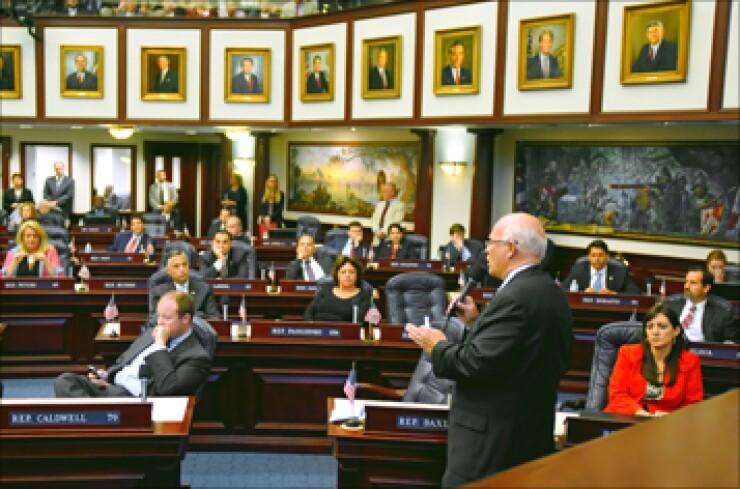
BRADENTON, Fla. - For the first time in five years, Florida legislators are recommending that the state issue new money bonds to finance public education capital outlay projects.
Such PECO bonds, as the public education capital outlay debt is called, are included in their proposed $82.35 billion budget for fiscal 2017, which was released Tuesday in preparation for a final vote.
If Gov. Rick Scott signs the appropriations bill as it stands, it would be the fourth straight year of record spending by the Sunshine state.
The total budget is an 8.7% increase over the current year. It is also higher than lawmakers were considering earlier in their session.
Legislators also included $420 million in bond financing for transportation projects and $205.5 million for turnpike projects.
Scott has consistently supported financing for road and bridge needs, and included $392.4 million for those purposes in the $79.3 billion budget he recommended for 2017.
However, Scott and other Republicans have for years openly discussed their aversion to using debt for most purposes.
Scott, who has line-item veto power, could strike the financing for schools.
Except for refundings, no new PECO bonds have been issued since fiscal 2011 in part because of declining gross receipt taxes that secure the borrowing program, according to Division of Bond Finance reports.
Lawmakers shifted a portion of the state sales tax to support the PECO program in 2014, creating an estimated $2.2 billion in borrowing capacity although no new bonds were approved then.
Bond capacity in the school finance program had increased to an estimated $2.7 billion as of last August.
Scott’s reaction to the budget could be negative after lawmakers who served as lead negotiators on the plan failed to include $250 million that he sought for additional economic development incentives to lure new businesses to the state.
Lawmakers also approved $400 million in various tax cuts, while Scott wanted $1 billion. They also included funding for many hometown projects that could be on the chopping block.
The budget was rolled out in time for a 72-hour “cooling off” period designed to give all legislators an opportunity to review it before voting on Friday, the last day of their session.





